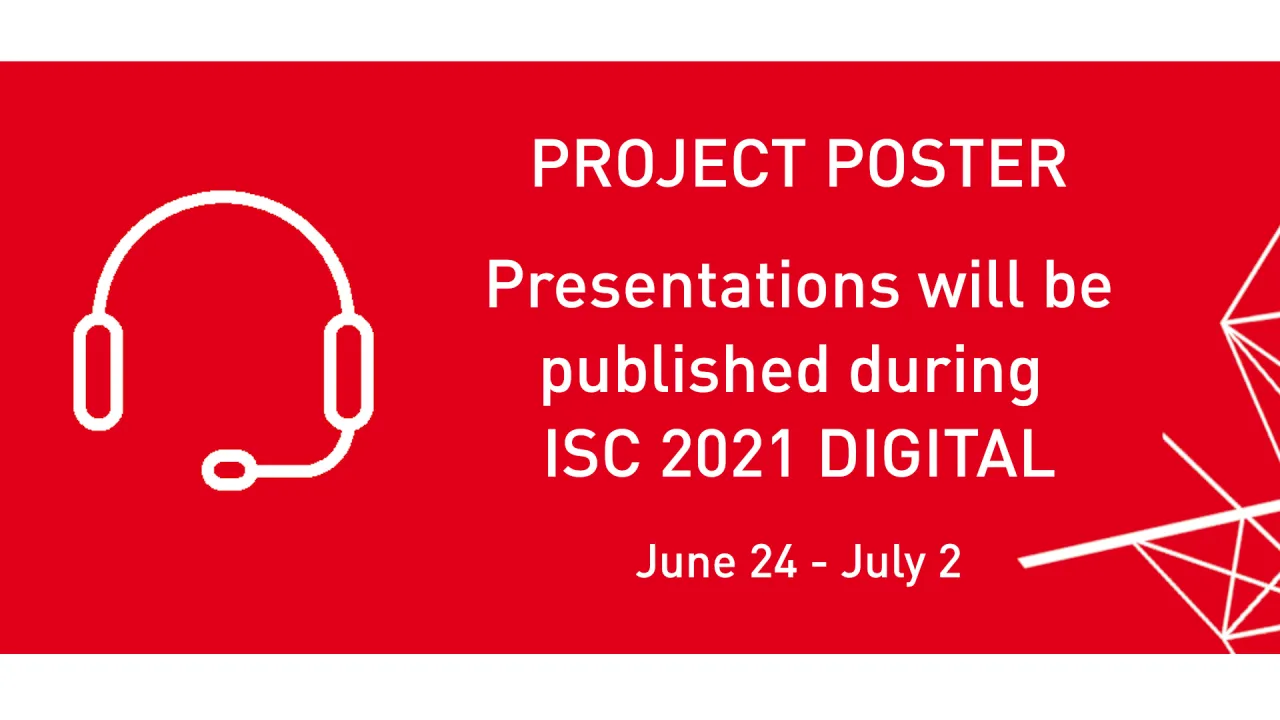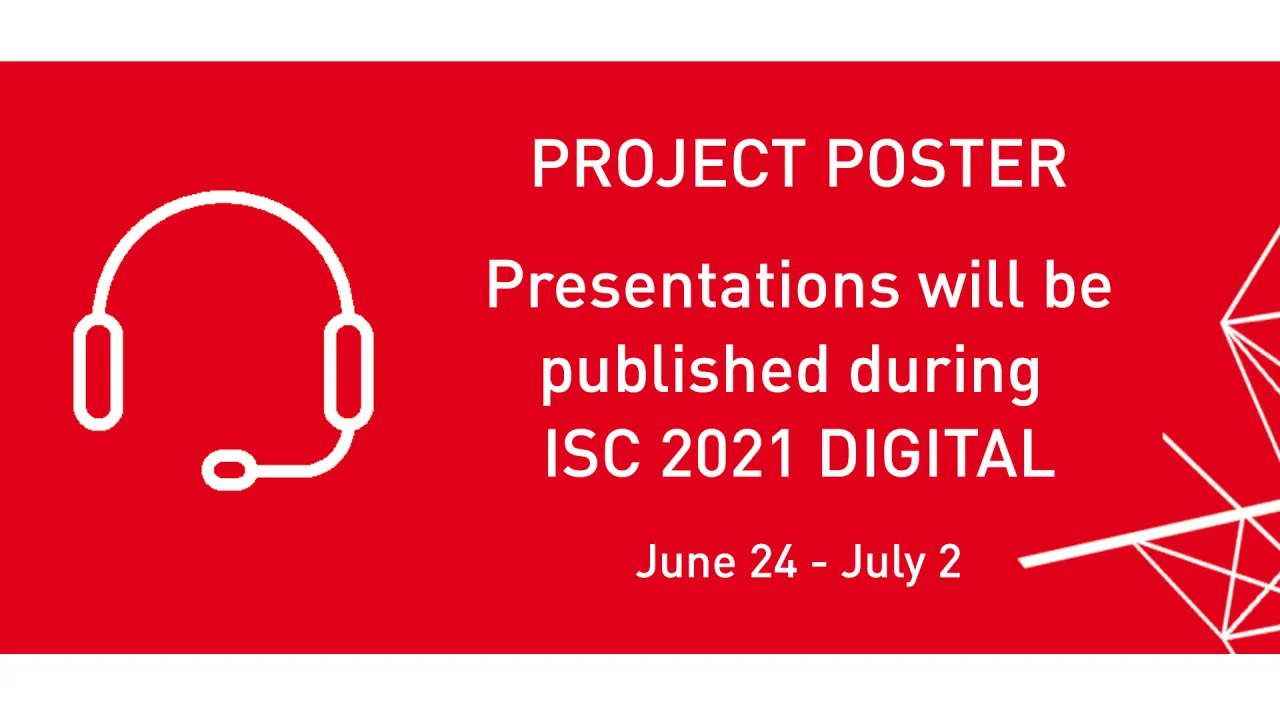

Visual Exploration and Sampling Toolkit for Extreme Computing (VESTEC)
Only 128 seats left
Wednesday, June 30, 2021 3:00 PM to 4:00 PM · 1 hr. (Africa/Abidjan)
HPC Workflows
Information
Contributors:
Abstract:
The recent pandemic has demonstrated that HPC is an important tool for workloads beyond traditional computation. Even when COVID-19 is a long distance memory, there will still be numerous disasters including wildfires, hurricanes, flooding, earthquakes, tsunamis, winter weather conditions, and accidents that must be addressed. While HPC has a long history of simulating such disasters, what’s missing to support emergency real-time decision making during emergencies is a combination of fast, real-time data acquisition, the ability to guarantee time constraints, and powerful in-situ methods that can interact with simulations on the fly. The Visual Exploration and Sampling Toolkit for Extreme Computing (VESTEC) project, funded by H2020 and led by DLR, is exploring this emerging use-case. With nine project partners from across numerous areas of expertise, this multi-disciplinary project has been developing the technologies and techniques required to demonstrate the role that HPC can play in this emerging application domain. Now in its last year, we are seeing significant results across our three use-cases (fighting wildfires, tackling the spread of mosquito borne diseases, and mitigating extreme space weather) which has the potential to benefit humanity. Numerous technologies must be made to work together, including visualisation (e.g. Intel’s OSPRay, Sorbonne University’s TTK, and ParaView from Kitware), real-time data acquisition and manipulation, HPC running the required simulations on supercomputers, and workflows which couple all facets together. The challenges here are significant, but if HPC can be proven as a tool in responding to real-world disaster, then the impact for our community could be huge.Visit the Project Website
Abstract:
The recent pandemic has demonstrated that HPC is an important tool for workloads beyond traditional computation. Even when COVID-19 is a long distance memory, there will still be numerous disasters including wildfires, hurricanes, flooding, earthquakes, tsunamis, winter weather conditions, and accidents that must be addressed. While HPC has a long history of simulating such disasters, what’s missing to support emergency real-time decision making during emergencies is a combination of fast, real-time data acquisition, the ability to guarantee time constraints, and powerful in-situ methods that can interact with simulations on the fly. The Visual Exploration and Sampling Toolkit for Extreme Computing (VESTEC) project, funded by H2020 and led by DLR, is exploring this emerging use-case. With nine project partners from across numerous areas of expertise, this multi-disciplinary project has been developing the technologies and techniques required to demonstrate the role that HPC can play in this emerging application domain. Now in its last year, we are seeing significant results across our three use-cases (fighting wildfires, tackling the spread of mosquito borne diseases, and mitigating extreme space weather) which has the potential to benefit humanity. Numerous technologies must be made to work together, including visualisation (e.g. Intel’s OSPRay, Sorbonne University’s TTK, and ParaView from Kitware), real-time data acquisition and manipulation, HPC running the required simulations on supercomputers, and workflows which couple all facets together. The challenges here are significant, but if HPC can be proven as a tool in responding to real-world disaster, then the impact for our community could be huge.Visit the Project Website

